Nuclear Medicine
Nuclear medicine is medical imaging that uses small amounts of radioactive material, known as radiotracers, to diagnose and determine the severity of, or treat, a variety of diseases. The radiotracer travels through the area being examined and gives off energy in the form of gamma rays which are detected by a special camera and a computer to create images of the inside of your body. Nuclear medicine imaging provides unique information that often cannot be obtained using other imaging procedures, and offers the potential to identify disease in its earliest stages.
If you have been scheduled to have a procedure at Mount Sinai South Nassau using Nuclear Medicine, please review the following frequently asked questions and answers prior to your procedure, and let us know if you have any other questions.
Frequently-Asked Questions Asked By Patients Regarding Nuclear Medicine Procedures
Can I have the test if I am pregnant?
You should inform your Doctor if you know or think you could be pregnant. You should discuss with your doctor whether the benefits of the test outweigh and potential risk to the fetus. Also discuss other alternate tests that you could have. Let the staff know if you are pregnant or if you are not sure if you could be pregnant. If you are not sure, then a pregnancy test will be requested.
Do I have to do any preparation for STRESS test?
Yes. Do not take any caffeinated or decaffeinated food or drink for 12 hours (like coffee tea, soda, hot chocolate, and DO NOT EAT CHOCOLATE PRODUCTS). Do not eat or drink anything else 2 hours before the test. Wear comfortable clothes, shoes and bring a blanket (sometimes it gets cold when you are resting). Bring a snack to eat, and a drink. The staff will let you know when you can have your snack and drink. Bring your prescription, insurance card and photo ID.
How long is the test?
It depends on the test. Some tests take 1.5 hours and others take up to 4-5 hours. Very few scans might require you to return 2 or 3 times over a few days.
- Bone scans require 2 trips: 1 hour for the first trip, where you register and the technologist will inject you with the radioisotope. Pictures may be taken during this first trip if your test requires it. Then, the next trip is 2 to 4 hours later. During the second trip, the technologist will perform the bone scan, which takes another 1.5 hours.
- Nuclear stress tests including Lexiscan and Dobutamine stress tests take between 4 and 5 hours. Sometimes they might take longer. Keep your day schedule flexible.
- Hida scans will usually take about 1.5 hours, but may take as long as 5 hours. The length of the scan depends on the physiology of the patient
- Gastric emptying scans require about 2.5 hours
- A thyroid scan with uptake is a 2-day study. It takes 1 hour on day 1 and 1.5 hours on day 2
- Parathyroid scans take about 4.5 hours
- Liver scans take 1.5 hours
- Muga scans take 2.5 hours
- Lung scans take 2 hours
Does the nuclear test interfere with any other procedures that I have scheduled or have had done previously?
Let the technologist know of any recent Nuclear Medicine tests you might have had so they can determine if that test will interfere with other procedures you have had previously, or have scheduled.
CAT scan contrast solution can interfere with thyroid scans. Let the staff know if you had a CAT scan with contrast within the last 3 months. Let us know what procedures you are scheduled for and we can tell you if the Nuclear Medicine procedure will interfere with it.
Can I preregister before the day of the test?
The registration office will call you if you are a candidate for pre-registration.
Is this injection a contrast?
No, the injection is not a contrast. This injection is different from contrast; therefore, this injection will not cause any problems for a patient with an allergy to iodine or contrast.
Will I have any reactions to the radiopharmaceutical material?
Reactions to radioactivity and the chemical to which the radioactive isotope is attached to, are rare. Adverse reactions, although exceedingly rare, might consist of skin rash, itching, nausea/vomiting, dizziness, hypotension, or chills. If you are in the Nuclear Medicine Department having the test and you think you are having a reaction, let the staff know, and a clinician will assess you to determine if any treatment is needed. If you develop a reaction after leaving the Nuclear Medicine Department, contact your Doctor or go to the nearest ER. Be sure to notify the staff of any allergies or allergic reactions you have had in the past.
How long does the material stay in my body?
It depends on the isotope that is being used for your scan. The most commonly used radioisotopes will have left your body within 1 day. Others might take 3 days, and some might take few weeks.
Can I be around infants, children, pets, and pregnant women? If not, for how long?
When you get diagnostic test you can be around almost everyone. However, do not babysit an infant or child who needs to be held for long periods of time on the day of test.
If your procedure is radioisotope therapy, then follow the special instructions that the treating doctor gives you. How long you will follow the special instructions depends on how much radioisotope is given to you.
What precautions should I take after my diagnostic test?
Do not breastfeed for 24 hours (or the amount of time you are told by the lab). On the day of the test, do not babysit a child who needs to be held for long periods of time.
Can I drive home by myself after a diagnostic test?
Yes you can drive home by yourself.
When will my doctor get the results?
The results will be faxed to your Doctor. Usually results are sent to your doctor within 1 day of completion of the scan.
What type of camera is it? Is it enclosed like an MRI?
Nuclear medicine cameras are open and not enclosed. However, depending on the body part being scanned, the camera may come close to your head. If it is a problem for you, we can often change your position to make the scan more comfortable for you.
How much radiation do I receive from this test?
It depends on the diagnostic test you are having. We use only the smallest amount needed to do the diagnostic scan. In general, your whole body will receive far less than the government limit for Nuclear Medicine Technologists, which is 5000mrem/year. Most of the Nuclear Medicine scans will give your whole body a similar amount of radiation that one would receive from a few chest x-rays or a CAT scan.
Do I wear a gown for the test?
Depending on the test you have, you might be asked to wear a gown. Most of the tests are done in your clothes and you don’t have to change. Wear clothes without any metal buttons, metal zippers or other metal artifacts.
Should I wear my Jewelry?
Your will be asked to remove your Jewelry during the test because jewelry can cause artifacts on the images, but you can wear your jewelry at all other times.
Can I have the test if I have a pacemaker or some other medical device implanted in me?
Yes, you can have this test with all the devices implanted in you. However, please let the staff know about your medical devices and any prostheses.
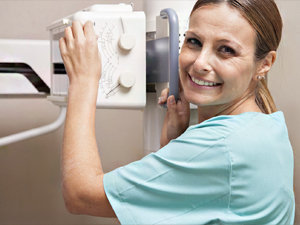
Mount Sinai Doctors - Oceanside, Radiology
Mount Sinai Doctors - Oceanside, Radiology specializes in the diagnosis and treatment...
Read More
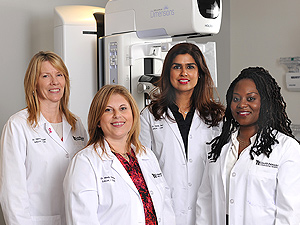
Center for Women's Imaging
From breast health to bone health and more, the experienced specialists at the Mount Sinai South Nassau...
Read More
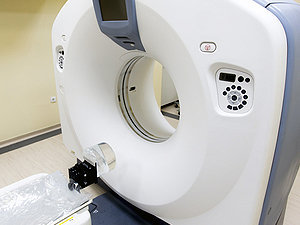
Mount Sinai Doctors - Rockville Centre, PET/CT Radiology
The board certified radiologists at Mount Sinai Doctors - Rockville Centre, PET/CT Radiology...
Read More
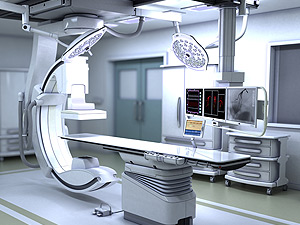
Interventional Radiology
Interventional Radiology is a sub-specialty of radiology providing
minimally invasive...
Read More

Ultrasound
Ultrasound exams, also called sonograms, are painless, fast and especially useful to help your physician diagnosis...
Read More
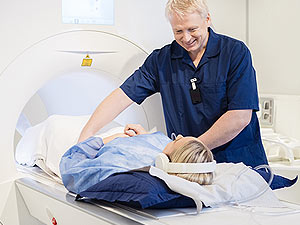
Nuclear Medicine
Nuclear medicine is medical imaging that uses small amounts of radioactive material...
Read More

School of Radiography
The Robert J. Hochstim School of Radiography is run by the experienced and dedicated staff...
Read More
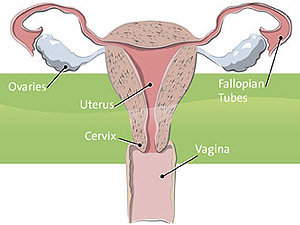
Uterine Fibroid Embolization
Mount Sinai South Nassau’s fellowship-trained interventional radiologists use minimally invasive...
Read More